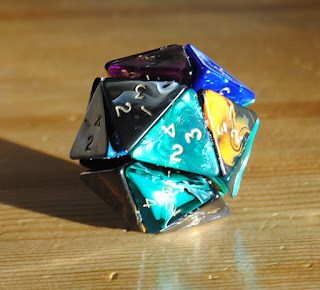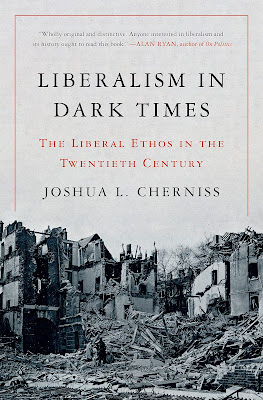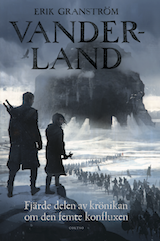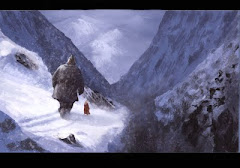
I'm not a researcher, but I've worked as CIO of two universities and as an editor popularizing research, so I am reasonably familiar with the nature of research. While following an esoteric discussion on the reproduction of two fantasy species in the game Forbidden Lands, some similarities between research and fantasy world creation suddenly struck me. I'd like to tell you about it, since it explains the way I work – not telling more facts than the basic necessities about my fantasy worlds, which some find frustrating. Questions might concern how magic actually works, whether the gods actually exist or not etc, i.e. – truths and facts.
Similarities with research
An experimental research project might come from an idea that you want to test, but often it is initiated because you scent a pattern in an already existing material, perhaps a structured deviation from expected results, or just the feeling that something is to found that hasn't so far been adressed. In the latter cases, you start with a heap of existing data and try to see patterns that might be further tested and purified and brought to conclusion.
This is exactly how I build my fantasy worlds. I start with some general, pretty simple vision and then start piling up unrelated ideas and dig for inspiration wherever I can find it. When I reach a certain volume of statements and ideas about the world, patterns always emerge and new connections show up, often in ways I couldn't know before discovering them. It's a process you need to have faith in for it to work. People often ask me whether I knew my complex world and story from start, but I never do and I wouldn't want to. Things I can plan in advance might run like clockwork, but they are never as alive as things I myself discover along the way, often with the happy elation of an explorer rather than as a methodical creator.
Differences from research
The main and obvious difference from research is that fantasy worlds are created from made up facts and ideas, but once you state these ideas, they ARE the fixed reality of the fantasy world and from there on they might be treated as actual facts and be mulled over and researched upon, making new patterns emerge. This however also shows the danger of establishing facts about the fantasy world, since once something has been stated and published, it's a FACT and cannot be taken back without loss and/or pain. Thus I never say more than I have to, since it keeps my options open, and makes way for new twists and discoveries. You will see this in the currently released expansion ”The Bloodmarches”, where old mythological beliefs suddenly are turned upside down. I think this makes fantasy worlds more alive and gives them depth. There's a trick to avoid facts that I used a lot in my Trachorian setting. As the world creator I seldom said ”this is how it is”. Instead I said ”this is what is claimed in the imperial academy of Tricilve”. After all, they might be right or they might be wrong at the academy.
Conclusion
So in the esoteric discussion on the reproduction of fantasy species where I started, questions are asked, but rather than answering them right away (which I no doubt could do if I put my mind to it, nailing the discussion shut), I follow, tease, comment and investigate the many suggested solutions from others. These in turn give me new ideas, making patterns appear due to the mere volume of ideas presented. We thus create together in a metagaming spirit! It's a wonderful fantasy world!

















